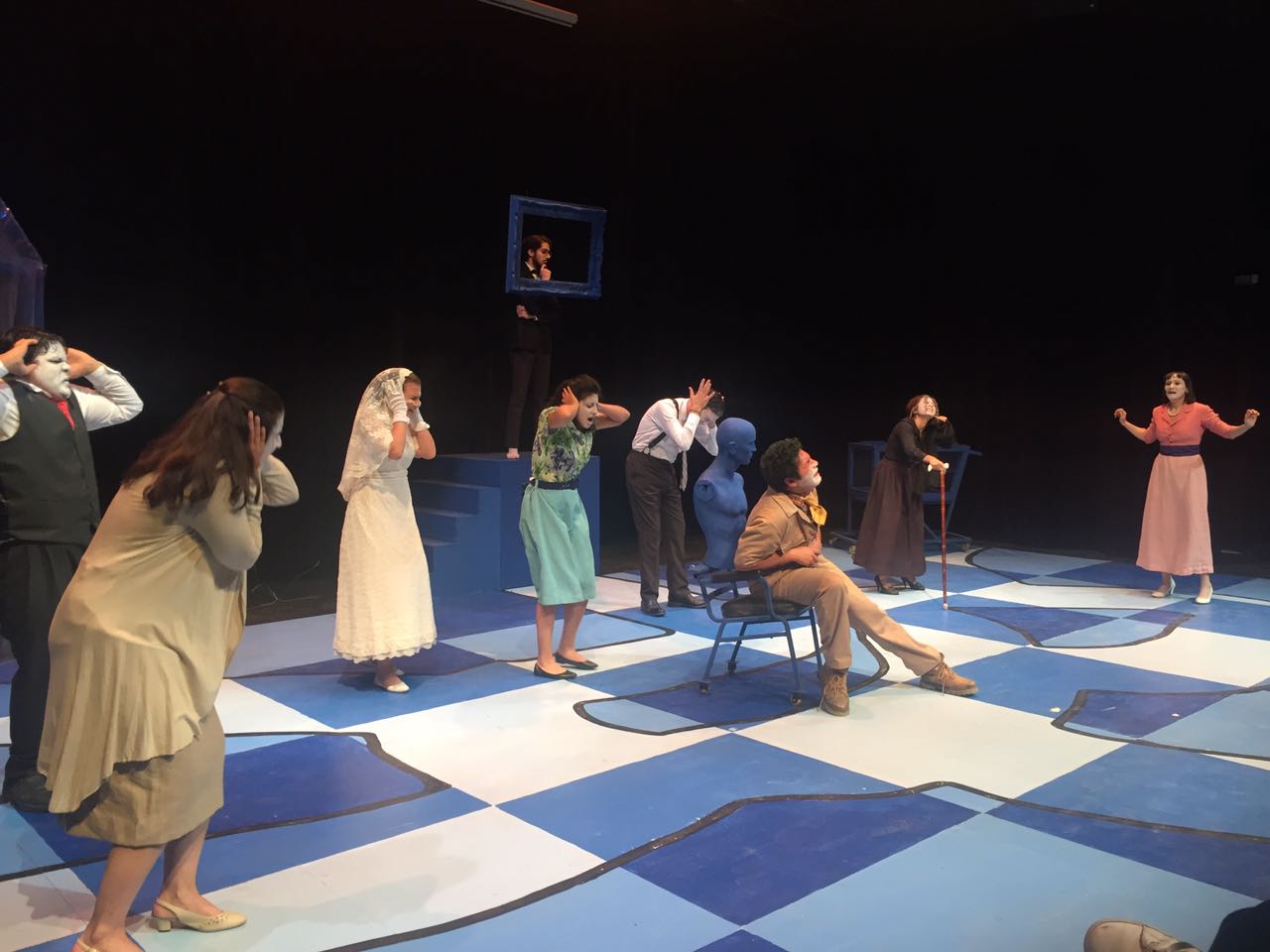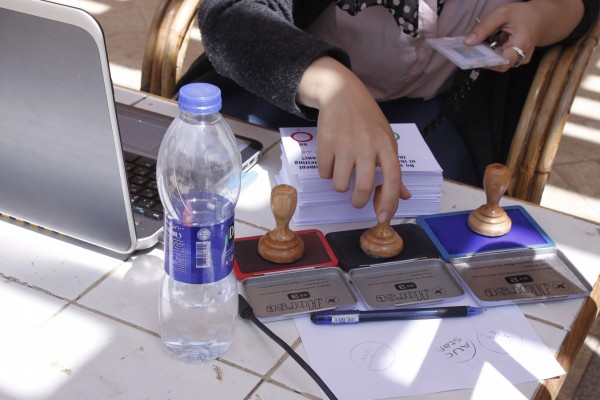“Above All, Lots of Omelets!” The Future is in Eggs Brings Absurdity to the Stage
By Mariam Ismail
Follow @mariam_ismail1
The Future Is In Eggs brings the wit of French drama to the AUC stage in a unique short-run production, funny, smart and outstanding in performance; brilliant in costume, setup and lighting.
Held in the Gerhart Theater from May 2-8, the play adds elements of modernity, satire, and hilarity in a way that gives the entire production the feel of an avant-garde or experimental film.
The start of The Future Is In Eggs is shocking and captivating. On a screen in center stage, archival documentary footage of past wars, marching soldiers, and silhouettes of women are shown, while on the left, the actors of the play all dance in a mesmerizing way, perfectly in rhythm with the eerie music playing in the background.
This start sheds light on the very much hidden message underlying the entire production. It points to that which the audience should keep in mind: the time of Hitler and Mussolini and the rise of fascism.
Eugene Ionesco wrote the play in 1957 as part of a series of plays all pursuing the Theatre of The Absurd. These plays were intended to ironically bring humor and lightness to an otherwise dark reality.
And absurd it was, with every theatrical element adding to the humor and lunacy of the play, from the extensive costuming to the exaggerated acting to the stage lights manipulating the events in a way that created an avant-garde production of great proportions.
The actors, four men and five women, all had their faces painted in white, but the two main characters, Jacques (Mostafa El Sadek) and Roberta (Aya Sharkawy), lovers with only half of their faces painted, perhaps to symbolize their iconic failure.
Jacques’ father (Ali El Shourbagy), a tall, assertive man who seems to be the leader of all the characters, expresses this failure multiple times, crying out at his son that he must “produce” and perpetuate this – quite literally – white race.
The entire family gets involved, starting from the parents to the grandmother and the sister, to help the two young lovers find a way to begin producing eggs. Yes, eggs.
These eggs allude to children, and the families can’t get enough of them. They pile more and more eggs onto a sobbing Jacques who is expected to hatch them while Roberta is somewhere backstage popping them out.
Again, the play turns dark, and Ionesco’s satire of fanaticism is brought to center stage, quite literally. Lights begin turning on and off, tense music plays in the background, and the characters turn into a series of yelling lunatics, marching back and forth.
They yell out their dreams for these eggs. They are to become opportunists, nationalists, revolutionaries, anti-revolutionaries, idealists, protestants, Israelis, free thinkers.
“And omelets! Above all, lots of omelets!” yells out Jacques’ grandmother, again and again.
The most unsettling aspect of the entire scene is Jacques’ father as he marches back and forth center stage yelling, “Production! Production!” He seems delirious, overtaken by his dreams of producing the supreme white race and is only broken out of his trance when his son yells out his dreams.
“Pessimists, anarchists, and nihilists,” screams Jacques bringing the entire stage to a halt with accusations of him losing his faith – how dare he question the white notion of purity.




